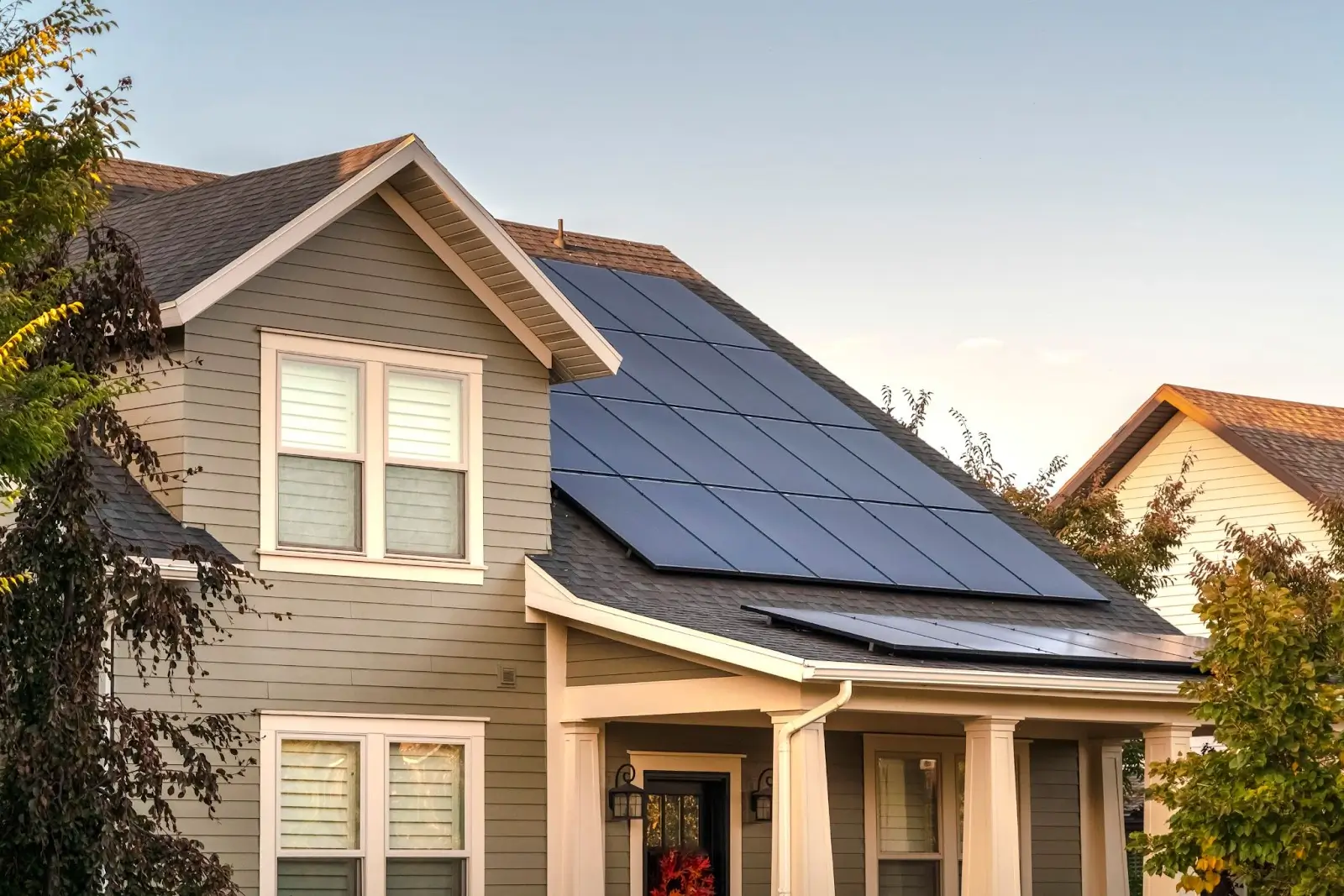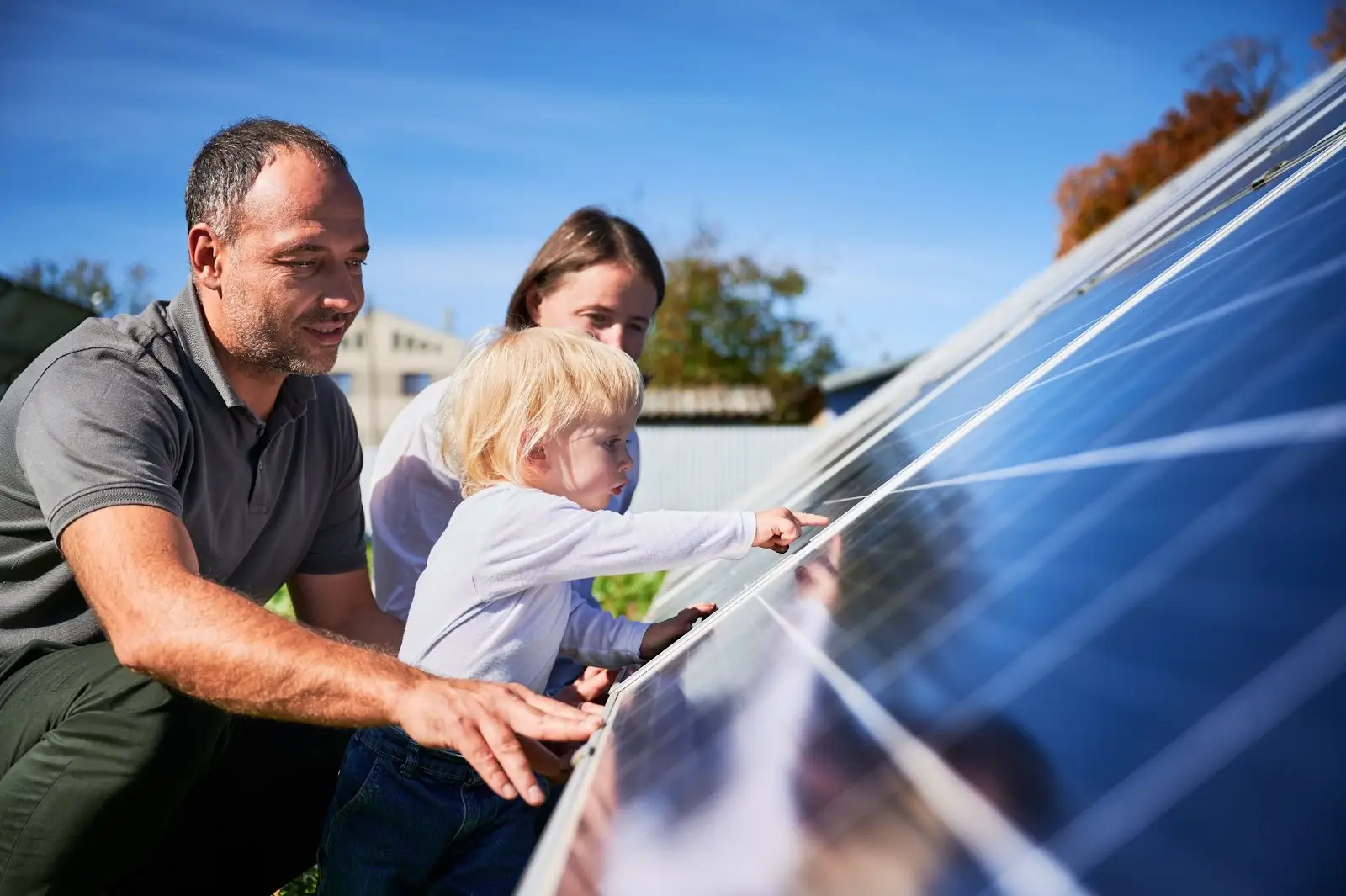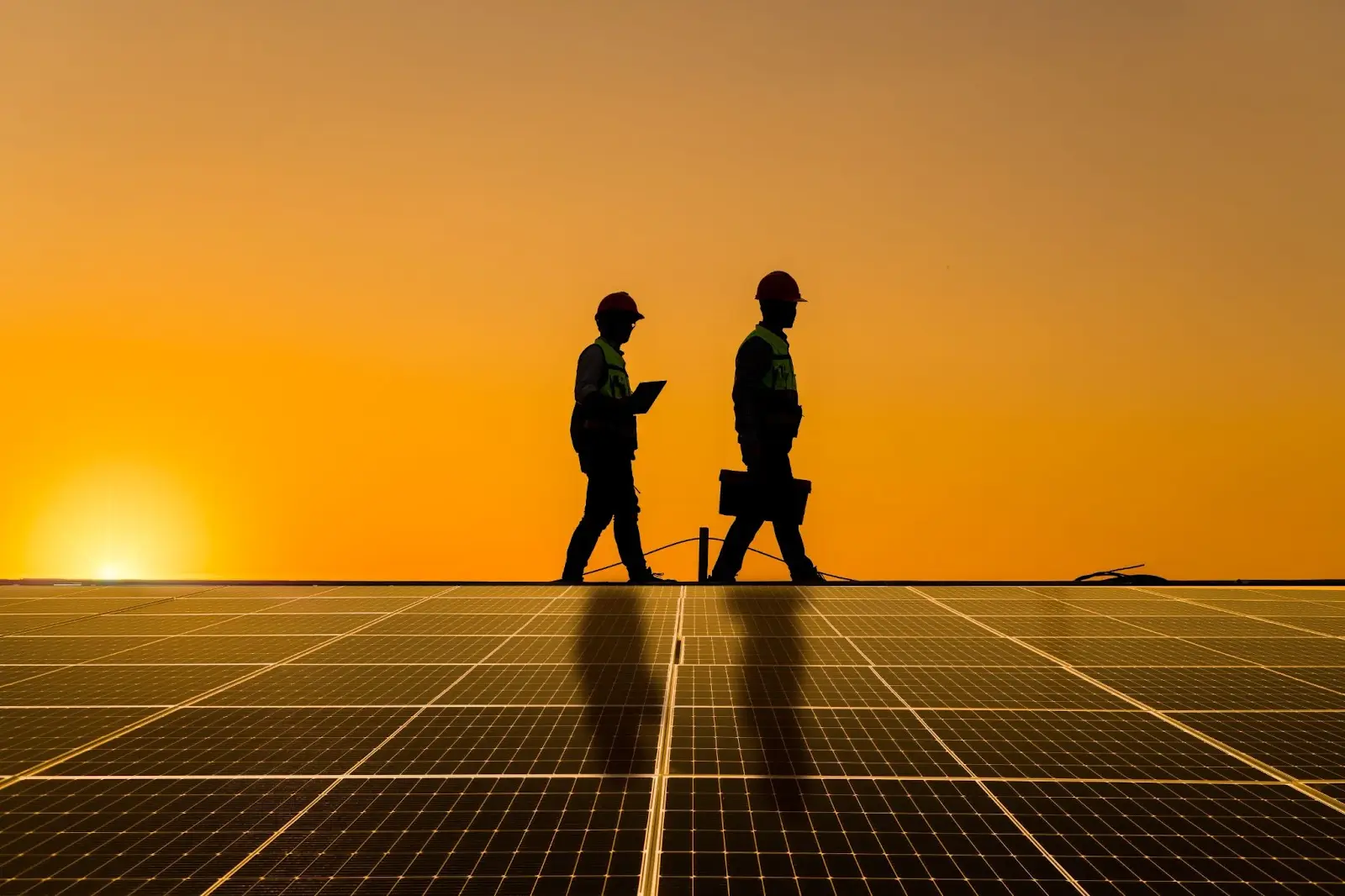As electricity prices continue to rise, many homeowners are exploring solar energy as a cost-effective solution to power their homes. Solar panels have become more affordable and efficient in recent years, making them a popular choice for households seeking to reduce their energy expenses. However, one of the most common questions when it comes to solar panel installation is: How many solar panels do you need to power your home?
The answer to this question depends on factors such as your daily energy consumption, geographic location, solar panel efficiency, and orientation.
In this article, we’ll explore these factors and guide you through determining the number of solar panels required to run a house. We’ll also discuss the benefits of choosing a high-quality solar panel system and provide guidance on selecting the right one for your needs.
Factors that Affect the Number of Solar Panels Needed for Your Home
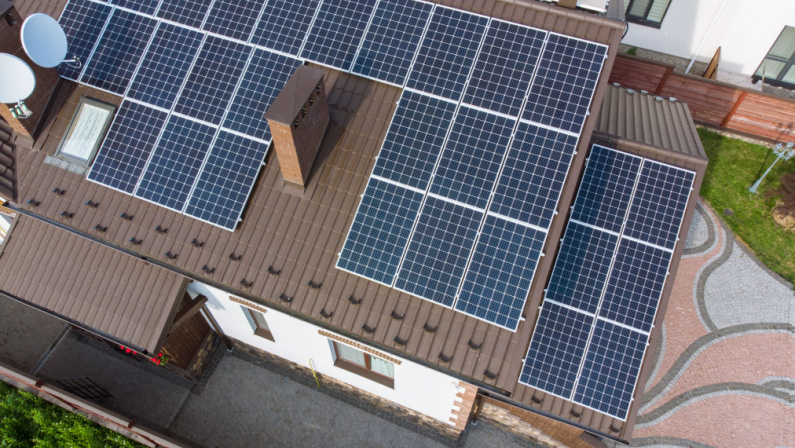
Solar panels are enough to power a house, but whether they are enough to fully meet the energy needs of your home depends on various factors.
Here are some of the things you need to consider before getting started with your own residential solar panel system:
Daily Energy Consumption of your Household
The first factor to consider is your household’s energy consumption. The more energy you use, the more solar panels you need to generate enough electricity to power your home. To determine your daily energy consumption, check your electricity bill and look for the average daily kilowatt-hour (kWh) usage.
Your Geographic Location and Climate
The amount of sunlight your panels receive will also depend on your geographic location and climate. Areas with more sunshine and fewer cloudy days will require fewer solar panels to produce the same amount of electricity as areas with less sun exposure. It’s also essential to consider the temperature in your area, as solar panels’ efficiency decreases in extreme heat.
Efficiency and Output of Your Solar Panel
The efficiency and output of your solar panels play a vital role in determining the number of panels you need to power your home. High-efficiency panels can produce more electricity with fewer panels, which can help lower your overall system cost.
It’s important to choose solar panels with the highest efficiency rating possible to maximize the energy they can generate. Solar panel efficiency is measured by the percentage of sunlight converted into electricity, and a higher percentage translates to more electricity being produced from the same amount of sunlight.
Where the Solar Panels are Facing
Solar panels facing south in the northern hemisphere receive the most sunlight exposure, while panels facing north in the southern hemisphere receive the most sunlight. Additionally, the optimal tilt angle for solar panels is usually equal to your location’s latitude, allowing the panels to receive the most direct sunlight possible throughout the day. Proper orientation and tilt of solar panels can significantly improve their efficiency and help ensure that your solar system produces the maximum energy possible.
Obstruction to the Panels
Shading and obstruction from trees, buildings, or other objects can significantly reduce the sunlight your panels receive. It’s essential to ensure that your panels are installed in an area with minimal shading and obstruction to maximize their efficiency.
How to Calculate the Number of Solar Panels Needed for Your Home
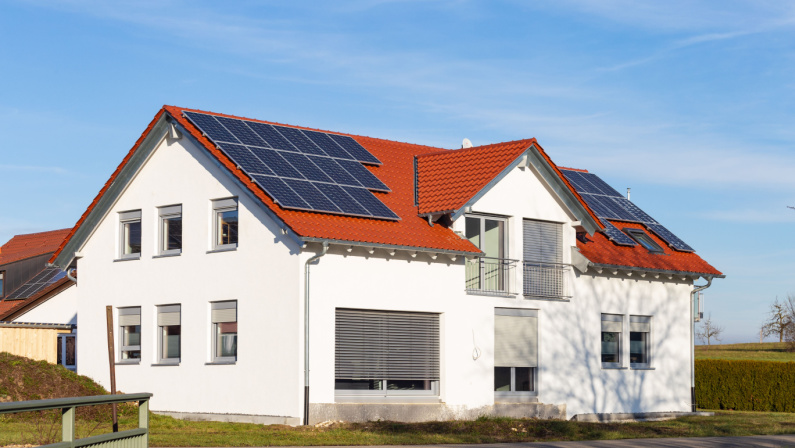
Evaluate Your Home’s Energy Consumption
To calculate the number of solar panels needed for your home, start by determining your household’s energy consumption. Look at your electricity bill and note the average daily kilowatt-hour (kWh) usage.
Calculate Your Home’s Daily Energy Needs
Once you know your daily energy consumption, multiply it by the number of days in a year to get your annual energy needs. For example, if your daily energy consumption is 30 kWh, your annual energy needs would be 30 kWh x 365 = 10,950 kWh.
Determine Your Solar Panel Wattage and Efficiency
Next, determine the wattage and efficiency of the solar panels you plan to install. The wattage indicates the maximum power output of each panel, while the efficiency indicates the percentage of sunlight converted into electricity.
Apply the Formula For Calculating Solar Panel Needs
To calculate the number of solar panels needed, use the following formula:
Number of Solar Panels = Annual Energy Needs / (Panel Wattage x Panel Efficiency x Hours of Sunlight)
Sample Calculation for a Typical Home
Let’s say you have a typical home in the United States that consumes 10,000 kilowatt-hours (kWh) of electricity per year. If you choose to install 300-watt solar panels with an efficiency of 20% and receive an average of 5 hours of sunlight per day, you would need approximately 34 solar panels to meet your annual energy needs.
To calculate the number of solar panels you need, you can use the following formula:
- Number of Solar Panels = Annual Energy Needs / (Panel Wattage x Panel Efficiency x Hours of Sunlight)
Using the example above, the calculation would be:
- Number of Solar Panels = 10,000 kWh / (300 W x 0.2 x 5 hours) = 33.33 solar panels
Therefore, rounding up, you would need approximately 34 solar panels to generate enough electricity to meet your annual energy needs.
How many solar panels do you need for common appliances?
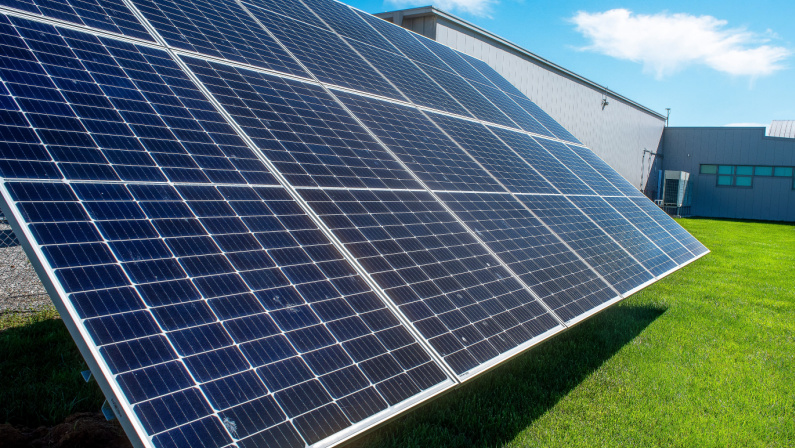
The number of solar panels needed to power specific appliances depends on their power consumption and usage. For instance, a 60-watt LED light bulb used for four hours per day requires about 0.24 kilowatt-hours (kWh) of electricity or approximately 88 kWh per year.
If you want to power ten of these light bulbs in your home, you would need approximately one 300-watt solar panel to generate enough electricity to power them. However, keep in mind that the number of solar panels needed will vary depending on the total number of appliances and their energy usage in your home. By determining your household’s energy usage, you can calculate the number of solar panels needed to power your home and appliances effectively.
What affects solar panel efficiency?
Understanding the various factors that affect your solar panel system’s efficiency can help you take the necessary steps to ensure that it operates at maximum efficiency and produces the most energy possible.
Temperature
As solar panels become hotter, they produce less electricity due to increased resistance in the conductive materials inside the panels. This means higher temperatures can cause solar panels to operate at a lower efficiency, while cooler temperatures can help improve their efficiency.
However, it’s important to note that while temperature can affect solar panel efficiency, modern solar panels are designed to withstand high temperatures and continue to produce electricity efficiently in a wide range of temperatures.
Dust and Dirt
The accumulation of dust and dirt on solar panels can block sunlight and reduce their efficiency. Regular cleaning and maintenance can help improve panel efficiency.
Shading
Obstructions such as trees or other objects can cause shading and reduce the sunlight solar panels receive, lowering their efficiency. It’s essential to install solar panels in an area where they can receive maximum sunlight exposure throughout the day.
Panel Age
As solar panels age, their efficiency may decrease slightly. This is because of normal wear and tear and exposure to environmental factors such as sunlight and weather conditions. Regular maintenance and monitoring can help identify any issues and ensure that your solar panels continue to operate efficiently over time.
Choosing the Right Solar Panel System
for Your Home
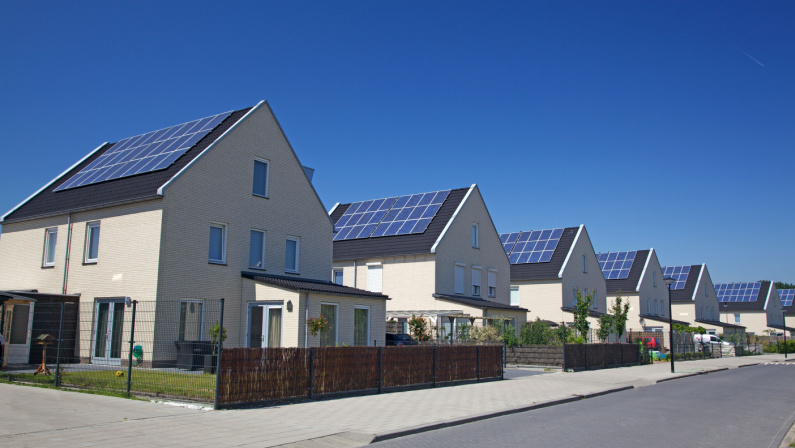
When choosing a solar panel system for your home, it’s crucial to consider factors such as efficiency, reliability, and affordability. Here are three common types of solar panel systems:
Grid-Tied Systems
Grid-tied systems are connected to the utility grid and allow you to sell excess energy back to your utility company. They are the most affordable and commonly installed solar panel system, but they do not provide backup power during power outages.
Off-Grid Systems
Off-grid systems are independent of the utility grid and require batteries to store excess energy for use during periods of low sunlight. As a result, they are more expensive than grid-tied systems but provide backup power during power outages.
Hybrid Systems
Hybrid systems combine the benefits of grid-tied and off-grid systems, providing backup power during outages while allowing you to sell excess energy back to your utility company. They are the most expensive solar panel system but offer the most flexibility and reliability.
Power Your Home With Solar
Switching to solar energy is an excellent way to reduce energy expenses. However, determining how the number of solar panels needed to power a typical house can take time and effort. By considering factors such as energy consumption, geographic location, solar panel efficiency, and orientation, you can accurately calculate the number of solar panels needed for your home.
If you’re not sure where to start, partnering with an experienced solar company is the best first step to take. At Construct Sun, we offer high-quality residential solar panel systems that are reliable, efficient, and affordable. Contact us and explore solar panel installation options for your home and start your journey toward a sustainable future.
Increase the value of your home while reducing your monthly energy bills. Get a free estimate today and see the difference for yourself!
Get Your Free Estimate


